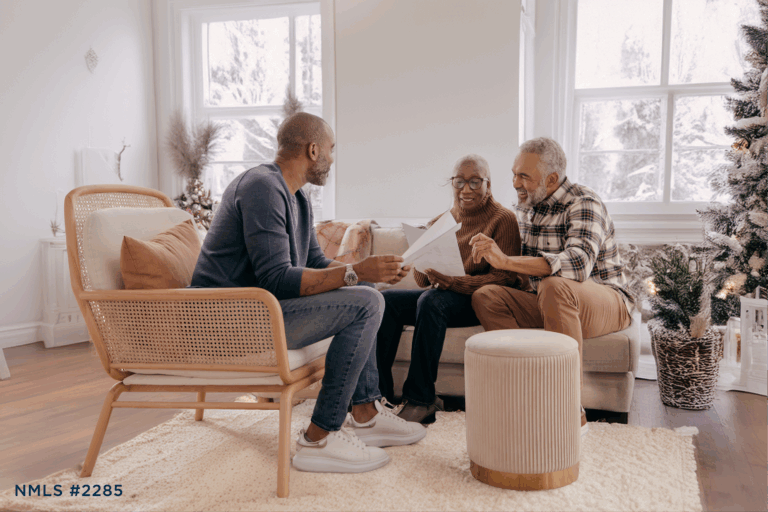Quick answer: Yes, you can generally take out a reverse mortgage on a condo, provided you meet all the reverse mortgage eligibility requirements and your condo is approved by the FHA.
For reverse mortgage loans: The borrower must meet all loan obligations, including living in the property as the principal residence and paying property charges, including property taxes, fees, hazard insurance. The borrower must maintain the home. If the homeowner does not meet these loan obligations, then the loan will need to be repaid.
Reverse mortgage guidelines on condos have become more flexible than they used to be, making this financial option available to more homeowners than ever.
To potentially be eligible for a Home Equity Conversion Mortgage (HECM), the FHA-insured reverse mortgage loan, a condo must be FHA-approved. Here’s how to check if your condo meets the requirements and what steps you can take if it does not.
Condo eligibility for a reverse mortgage
The best way to see if your condo is eligible for a reverse mortgage is to check the U.S. Department of Housing and Urban Development (HUD) website. You can search by the condo’s name, location, or approval status. If the project is FHA-approved, you can take the next step toward applying for a reverse mortgage.
Appraisal requirements for authorized condos
Even if your condo is FHA-approved, it will still need to meet certain reverse mortgage appraisal requirements. During the application process, an FHA-approved appraiser will visit your condo to confirm its value and check that it meets basic health and safety standards.
To meet FHA appraisal requirements, your condo:
- Must have working electricity, heating, and running water
- Must include a functioning bathroom and proper roofing
- Must be structurally sound and free of safety hazards
Getting condos FHA-approved
If your condo is not FHA-approved, you may still have options. Borrowers interested in a reverse mortgage can start the FHA approval process in one of two ways:
- Check with your homeowner’s association (HOA). Contact your HOA board or property manager and ask if they are willing to apply for FHA approval for the entire complex. The HOA will need to submit an application package to HUD, which includes financial statements, insurance coverage, and governing documents for the property.
- Request single-unit approval. If your HOA does not plan to pursue approval, you may still be able to apply for single-unit approval. In this case, your lender will usually submit the request to HUD on your behalf. The lender must provide specific documentation, including proof that the condo meets FHA requirements for safety, insurance, and financial stability.
Because the approval process can be detailed, most borrowers work closely with their lender to manage the paperwork and communication with HUD. Your lender can tell you what documentation is needed and help ensure the process moves forward smoothly.
Requirements for FHA approval of a condominium
If several condo owners are interested in reverse mortgages, your homeowners association may be more willing to apply for FHA approval. Keep in mind that there are costs associated with this process, and approval is not guaranteed.
For a condo project to potentially gain FHA approval, it must meet the following requirements:
- Include at least two dwelling units
- Be primarily residential in use
- Have at least 50% of units owner-occupied
- Limit ownership to no more than 10% of units by a single investor
- Allow leasing without requiring owners to live in the unit for a full year first
- Have no more than 15% of units 60 days or more past due on HOA fees
- Limit commercial space to no more than 35% of the total floor area
- Dedicate at least 10% of the HOA budget to a reserve fund (savings account)
- Allow no more than 50% of units in the project to be FHA-insured
Requirements for Single Unit Condo Approval
Even if your HOA chooses not to pursue approval for the entire complex, you may still be able to apply for single-unit approval (formerly known as “spot approval”). To be eligible, the following requirements must be met:
- Construction on the condo must be complete
- The condominium must have at least 5 units
- In projects with more than 10 units, no more than 10% can already be FHA-insured
- In projects with fewer than 10 units, no more than 2 units can already be FHA-insured
Which Condo Owners are Potentially Eligible for a Reverse Mortgage?
Even if your condo unit is FHA-approved, at a minimum, you must meet the borrower requirements to potentially be eligible for a reverse mortgage. The application process also includes a required counseling session led by a HUD-approved counselor to help ensure you understand how a reverse mortgage works before moving ahead with the loan.
The Bottom Line
Getting a reverse mortgage on a condo is possible, but it may come with a few extra steps. Your condo must be FHA-approved, either at a building level or through single-unit approval, and you’ll still need to meet the borrower eligibility requirements. While the process can seem complex, your lender can guide you through each step and help determine whether a reverse mortgage is the right fit for your situation.
[CLOSING DISCLOSURES]
The information provided above is a general summary of FHA condominium approval requirements and does not include all eligibility criteria. For the complete and most current guidelines, please refer to the official FHA Single Family Housing Policy Handbook (HUD Handbook 4000.1)



